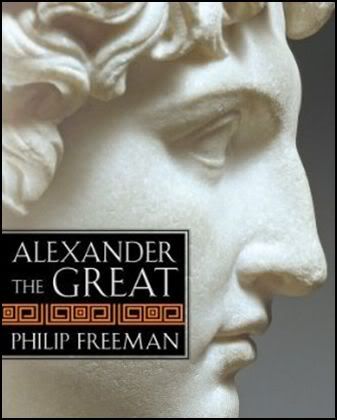Makedonac
King of Macedonia
It´s propagandaaaaa timeeee!
wieso hört ihr dann nicht auf damit?

It´s propagandaaaaa timeeee!

1.Warum das in diesem Buch - im Eingangsbeitrag - so ist, ist mir nicht eindeutig klar, jedoch wenn ich auf das Erscheinungsjahr schaue, könnte es sein das der Author Explizit damit die lokale "slawisch" sprachige Bevölkerung in Nordgriechenland ansprechen wollte.
2....aber natürlich,wer denn konnte lesen, schreiben - sowohl "griechisch" als auch "slawisch"??
Man sollte beachten das Makedoniens Bevölkerung bis in das 20 Jhdt. als "ungebildet" galt.
Somit lässt sich dieser Umstand sehr leicht erklären, auch existieren Hinterlassenschaften in dem die "Sprache des Volkes" mit "griechische" Buchstaben verfasst wurde, damit Priester die Messen in der Sprache abhalten konnten die die Bevölkerung auch tatsächlich nutzte.
Ein Manuskript das diese These unterstreicht ist die Konikovo Gospel.
The Konikovo Gospel (Bibl.Patr.Alex. 268)
A bilingual vernacular Gospel manuscript from Macedonia
(late 18th – early 19th century)
In the winter of 2003/04, researchers from the University of Helsinki found an interesting bilingual manuscript, written in what is nowGreek Macedonia in the late 18th or early 19th century. It contains a Greek evangeliarium (Gospel lectionary for Sunday services) and its Slavic translation, both written in Greek letters. What makes the manuscript unique is its bilinguality, and the fact that both the Greek and the Slavic texts represent the vernacular, not the church language. The Slavic part is the oldest known text of greater scope that directly reflects the living dialects of Southern Macedonia. It is also the oldest known Gospel translation in Modern Macedonian.
The beginning of the Slavic text, with corrections by Pavel Božigropski, was printed in Thessaloniki in 1852–1853, and these four pages have been known in Slavic studies as the “Konikovo Gospel” after Pavel’s home village (nowadays known as Dytikó). The newly found manuscript shows, however, that the translation came into being earlier and in a fashion other than has been assumed. The manuscript also reflects the sound structure of the local dialect better than the short printed text did.
The manuscript must originally have contained about 124 pages, 74 of which have been preserved. The Slavic part is a valuable source for research into the dialects and more recent history of Macedonian.


Hahahahha ich lach mir einen ab!!!Ich erkärs dir. Wenn du dich mit mir auf Griechisch unterhälst, tust du es in Wahrheit garnicht.
Mathematisch sieht es so aus:
Griechisch = Tod
Yunan spricht Griechisch = Tod
Yunan spricht Tod = Griechisch
Yunan ist Tod = Grieche
Toter Grieche = Yunan
und Monkey ist ein Idiot.
was soll ich dir fuer infos geben?
so wie ein bairisch ein deutscher dialekt ist, ist auch makedonisch, thessalisch unsw..griechischer dialekt ja sogar die kretaner haben ein dialekt..die haben in jede ihre ende anstat s dagenh die sch
ich z.b habe ein thessalischen dialekt

.. he switched from his usual Greek speech to yell at his guards in Macedonian. Later still his soldiers mocked an officer on trial for adressing them in Greek rather than normal Macedonian of the ranks. Macedonians were known for their odd words and strange pronunciation - they could never quite get Greek sounds right even when they tried.

irgendwas zwischen dorisch und thrakoillyrischMal ne dumme Frage ^^
welche Sprache hat Alexander der Große gesprochen?
Folge dem Video um zu sehen, wie unsere Website als Web-App auf dem Startbildschirm installiert werden kann.
Anmerkung: Diese Funktion ist in einigen Browsern möglicherweise nicht verfügbar.
Wir verwenden essentielle Cookies, damit diese Website funktioniert, und optionale Cookies, um den Komfort bei der Nutzung zu verbessern.
Siehe weitere Informationen und konfiguriere deine Einstellungen